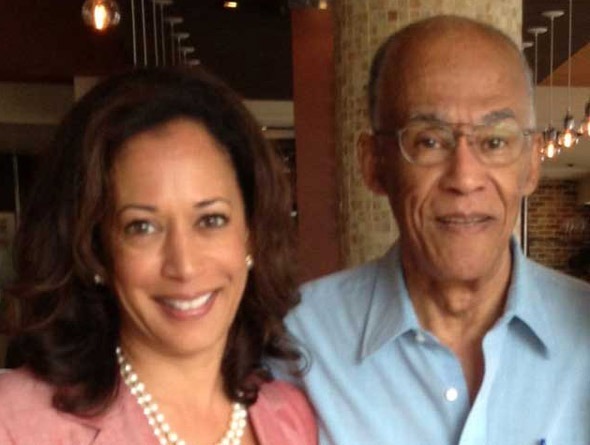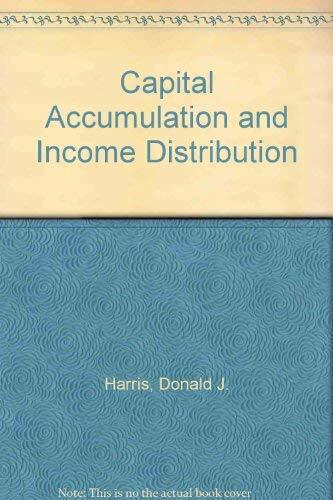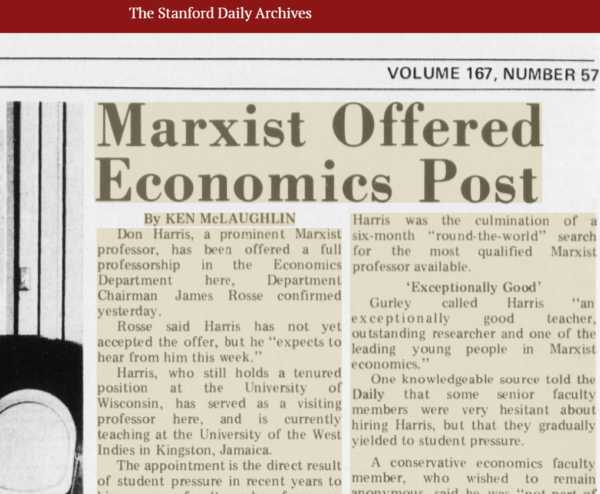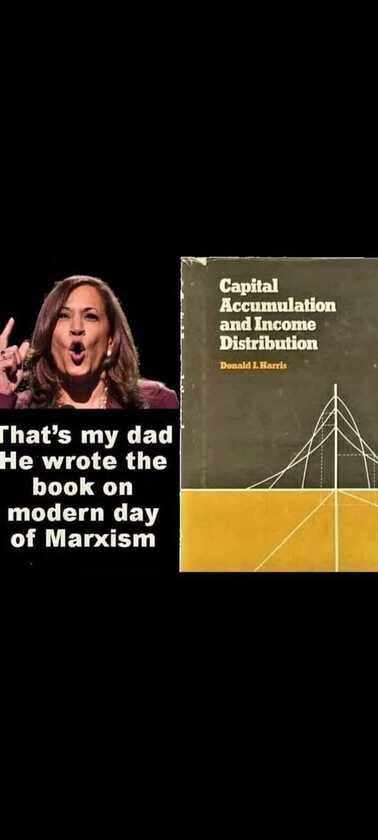Donald J. Harris, a prominent economist and the father of Vice President Kamala Harris, is best known for his academic contributions to the field of economics, particularly through his book "Capital Accumulation and Income Distribution." This work is not just an academic exploration; it is deeply rooted in Marxist ideology, reflecting a worldview that prioritizes wealth redistribution and critiques the fundamental structure of capitalist economies. As we delve into the key themes of this book, it is essential to understand the ideological underpinnings and consider how they might influence Kamala Harris’s own political philosophy.

Key Points of Capital Accumulation and Income Distribution
1. Capital Accumulation and Economic Growth In his book, Donald J. Harris explores the concept of capital accumulation—the process by which wealth is generated through investment in productive assets. While this process is typically viewed as the engine of economic growth, Harris presents it as a double-edged sword. He argues that while capital accumulation drives economic expansion, it also exacerbates income inequality, leading to a concentration of wealth in the hands of a few. This critique aligns closely with Marxist thought, which views capital accumulation as inherently exploitative, benefiting capitalists at the expense of the working class.
2. Income Distribution and Class Struggle Harris’s analysis of income distribution is another key aspect of his book. He examines how income is divided between labor (workers) and capital (owners of production), highlighting the inherent power imbalances in capitalist societies. According to Harris, these imbalances lead to persistent inequality, with capitalists amassing wealth at a much faster rate than workers. This theme is a cornerstone of Marxist ideology, which posits that the capitalist system is designed to perpetuate class struggle, keeping workers oppressed while the wealthy few continue to dominate the economy.
3. Policy Implications: Redistribution and Regulation The policy implications of Harris’s work are clear: without government intervention, capitalist economies will naturally tend to concentrate wealth, leading to greater inequality and social unrest. He advocates for policies that would redistribute income more equitably, such as progressive taxation, stronger labor rights, and increased government regulation of markets. These ideas are fundamentally socialist, emphasizing the role of the state in correcting the imbalances created by capitalism and ensuring a more equitable distribution of wealth.

A Warning About Kamala Harris’s Potential Ideological Leanings
Given the deeply Marxist and socialist nature of Donald J. Harris’s work, it is worth considering how these ideas might have influenced his daughter, Kamala Harris. As Vice President and a potential future presidential candidate, Kamala Harris’s policy positions and ideological leanings are of significant public interest. While she has not explicitly endorsed her father’s economic theories, the influence of such a prominent figure in her life cannot be ignored.
If Kamala Harris shares even a fraction of her father’s ideological perspective, it could have profound implications for her approach to economic policy. Policies rooted in Marxist or socialist principles, such as aggressive wealth redistribution, expanded government control over the economy, and a focus on class struggle, could steer the country in a direction that many Americans might find troubling. These ideas challenge the very foundations of the free-market system that has long been a cornerstone of American prosperity.

Conclusion
Donald J. Harris’s "Capital Accumulation and Income Distribution" offers a critical view of capitalist economies, rooted in Marxist ideology. His analysis of capital accumulation, income distribution, and the need for government intervention reflects a worldview that prioritizes wealth redistribution and critiques the inherent inequalities of capitalism. As voters consider the future of American leadership, it is important to be aware of these ideological influences and the potential impact they could have on Kamala Harris’s policy decisions. The question remains: Will Kamala Harris bring her father’s Marxist-inspired ideas into the highest levels of American government, and if so, what does that mean for the future of our nation?













